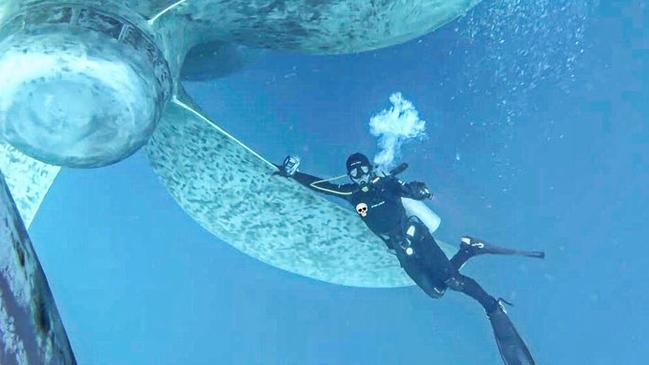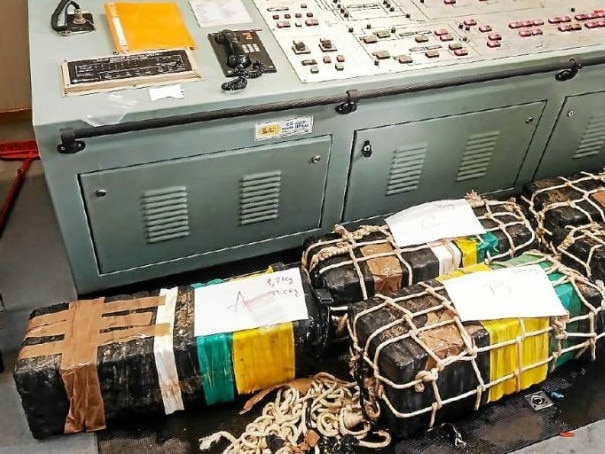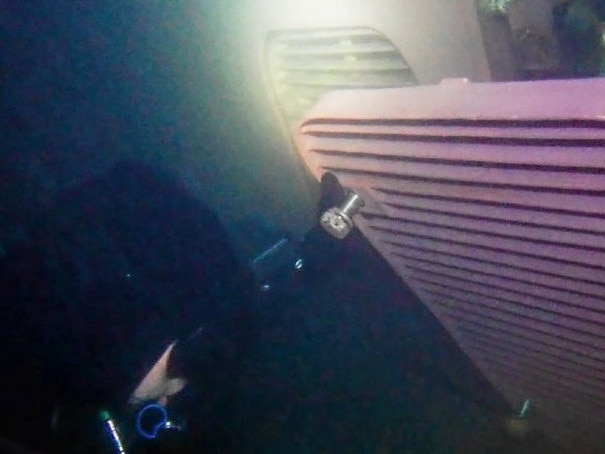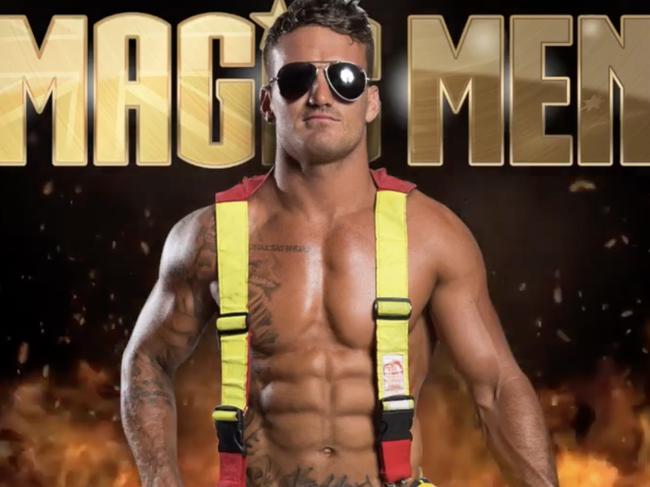Drug syndicates turn to ‘parasite smuggling’ to breach borders
Super magnets, secret sea chests and parasite smuggling — the extraordinary lengths drug syndicates are adopting to breach our borders.

Police & Courts
Don't miss out on the headlines from Police & Courts. Followed categories will be added to My News.
CRIME gangs are increasingly smuggling drugs into Australia via ship hulls in a practice known as “parasite smuggling.”
They are secreting them in gated, below-surface compartments of cargo vessels called sea chests, which can hold hundreds of kilograms of their illicit product.
Commander Bjorn Roberts of Australian Border Force said some of the syndicates were also using powerful magnets to hold the consignments to the exterior of hulls or bolting them on.
Cdr Roberts said parasite smuggling was an emerging preferred technique of syndicates targeting Australia with huge consignments of cocaine and methamphetamine.

They spend big money flying in foreign scuba divers who use bubble-free scuba gear and underwater scooters to retrieve the drugs – which are also being hidden in rudder trunks – on arrival.
It is a favoured method of the South American gangs which supply much of the world’s cocaine and view the Australian market as extremely lucrative.
“Particularly cocaine, this method is the methodology of choice. It’s something we are definitely trying to keep up with. At the moment we are upshifting the technology to stay in the fight,” Cdr Roberts said.
One attraction of parasite smuggling compared to conventional methods is that it does not leave behind links to shipping manifestos and other evidence.
“They leave fewer breadcrumbs behind,” Cdr Roberts said.
A major challenge for law enforcement is that more foreign ships dock at regional ports than stop off in the capital cities.

One is the Falkonera, in which French authorities this week found 180kg of cocaine hidden in a sea chest.
The Falkonera has travelled here seven times in the past 12 years, most recently to the regional port of Bunbury, West Australia, in October last year, a trip preceded by a visit to Brazil.
There are suspicions the cocaine uncovered by the French was destined for the Australian market.
The retrieval work at the other end comes with huge risks.
Brazilian diver Bruno Borges, flown in especially to collect drugs, died in Newcastle Harbour last year.
Melbourne stripper Matthew Hodder is languishing in a New Zealand prison after being arrested while allegedly trying to collect drugs from a vessel docked near Dunedin.
Australian Federal Police Commander Kate Ferry said there was the additional threat posed by members of the community notifying authorities of suspicious dive activities next to wharves.
“A lot of things have got to go right,” Cdr Ferry said.

The syndicates are also increasingly favouring the “drop-off” method, in which caches of drugs are thrown overboard to be collected later by co-offenders, often on isolated stretches of Australia’s 37,000km of coastline.
Last month two men were charged with attempting to possess a commercial quantity of a border-controlled drug after cocaine was found stuck to the bottom of the Cyprus-flagged bulk carrier Stalo in Newcastle.
Massive cocaine hauls have been recovered and arrests made on remote stretches of coast off West Australia and South Australia in the past year.
There have been instances of GPS technology being used so gofers can find packages thrown overboard.
Cdr Roberts – who leads the ABF’s operation Jardena – said the syndicates orchestrating drug shipments were still heavily involved in traditional shipments via legitimate freight consignments involving “trusted insiders” in supply chains.
But he said there had been major change in trafficking since he started in law enforcement 30 years ago when Australian criminals would travel overseas and organise importations themselves, then collect them later.
“In my experience, more than half the people we are arresting and charging are foreign nationals,” Cdr Roberts said.
“When I started it was criminal organisations within Australia which would decide they wanted to import drugs to sell.”


